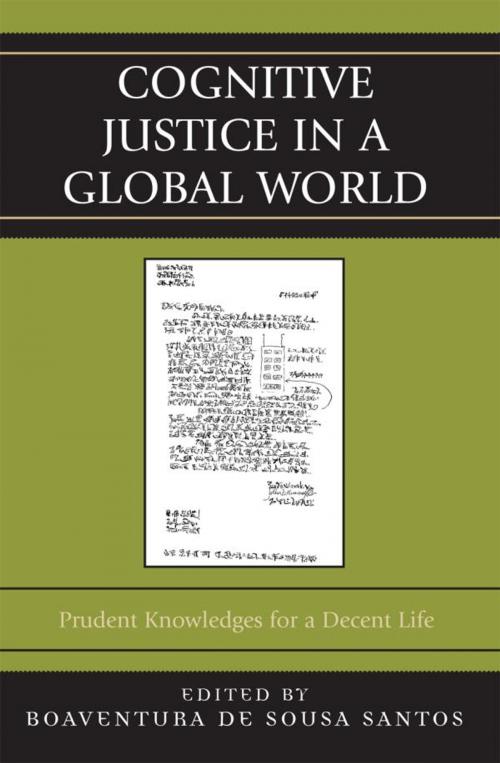Cognitive Justice in a Global World
Prudent Knowledges for a Decent Life
Nonfiction, Reference & Language, Law, Science & Nature, Science, Religion & Spirituality, Philosophy| Author: | ISBN: | 9780739153130 | |
| Publisher: | Lexington Books | Publication: | October 23, 2007 |
| Imprint: | Lexington Books | Language: | English |
| Author: | |
| ISBN: | 9780739153130 |
| Publisher: | Lexington Books |
| Publication: | October 23, 2007 |
| Imprint: | Lexington Books |
| Language: | English |
Cognitive Justice in a Global World: Prudent Knowledges for a Decent Life is an edited collection that springs from the now dormant debates known as 'The Science Wars,' which questioned the nature of scientific theories. Learning from the debates about the plurality of truths and opinions, editor Boaventura de Sousa Santos has realized an opportunity for strengthening the relations between the natural and social sciences with more epistemological affinities and for opening up new transnational dialogues between scientists and other producers of knowledge. This book analyses in detail some of the topics that amount to a set of problematic relations between science and ethics; between objectivity and neutrality; between the sociological and theoretical condition of production and the limits of scientific rigor; between public faith in science and the economic powers that determine scientific priorities; and between science and other kinds of knowledge existing in society. Maintaining that global social injustice is by and large epistemological injustice and that there can be no global social justice without global cognitive justice, Cognitive Justice in a Global World is an important collection for higher-level students and researchers in the social sciences, philosophy of science, and intellectual history.
Cognitive Justice in a Global World: Prudent Knowledges for a Decent Life is an edited collection that springs from the now dormant debates known as 'The Science Wars,' which questioned the nature of scientific theories. Learning from the debates about the plurality of truths and opinions, editor Boaventura de Sousa Santos has realized an opportunity for strengthening the relations between the natural and social sciences with more epistemological affinities and for opening up new transnational dialogues between scientists and other producers of knowledge. This book analyses in detail some of the topics that amount to a set of problematic relations between science and ethics; between objectivity and neutrality; between the sociological and theoretical condition of production and the limits of scientific rigor; between public faith in science and the economic powers that determine scientific priorities; and between science and other kinds of knowledge existing in society. Maintaining that global social injustice is by and large epistemological injustice and that there can be no global social justice without global cognitive justice, Cognitive Justice in a Global World is an important collection for higher-level students and researchers in the social sciences, philosophy of science, and intellectual history.















